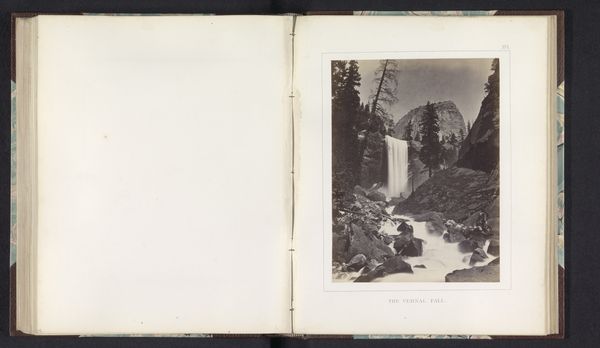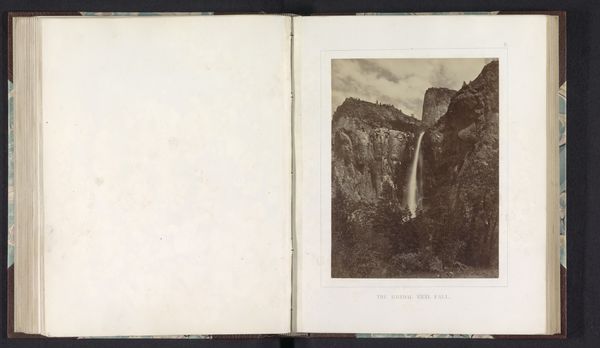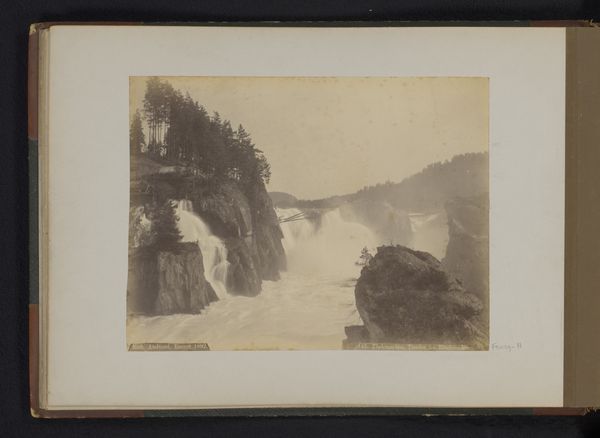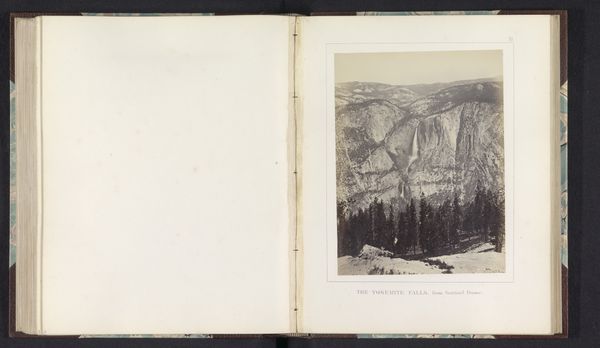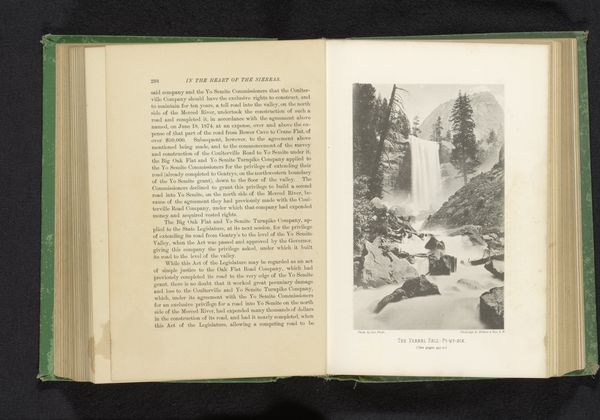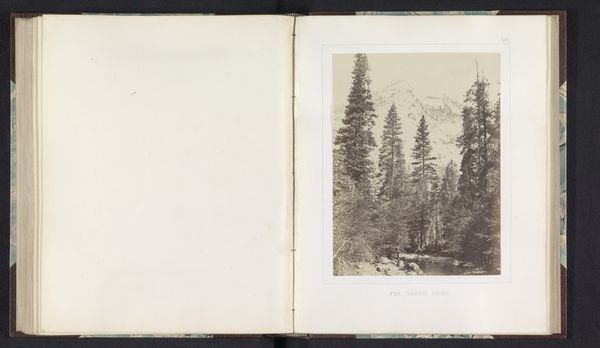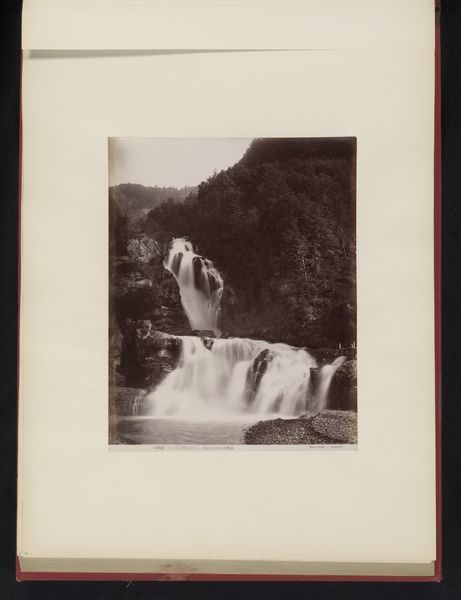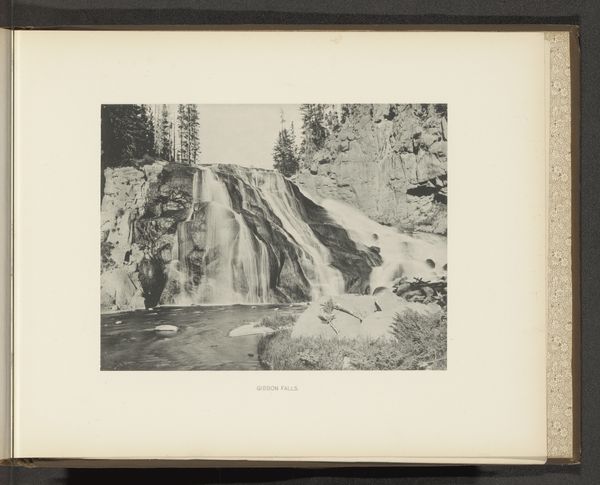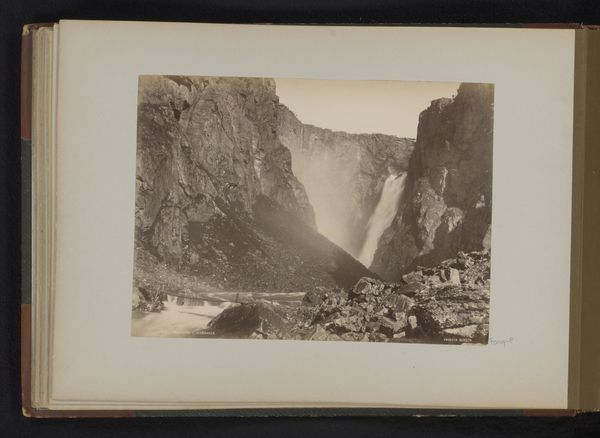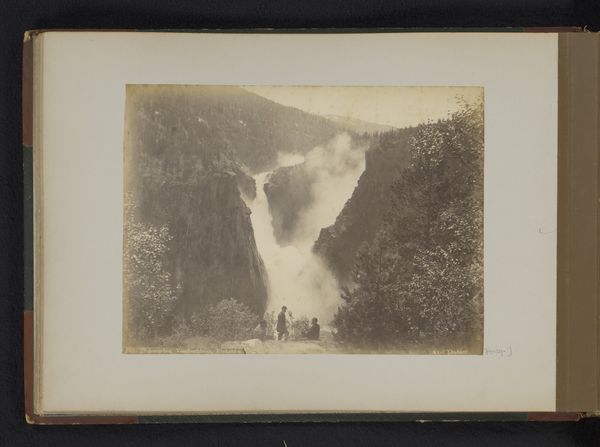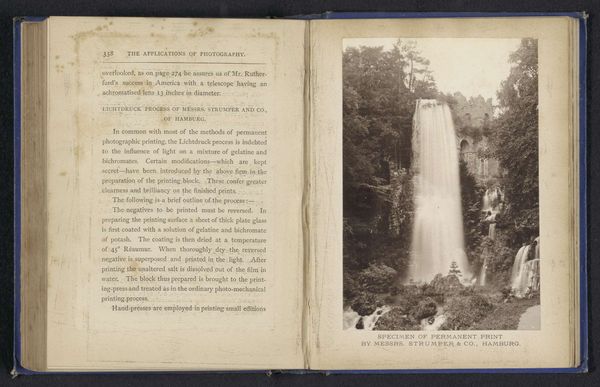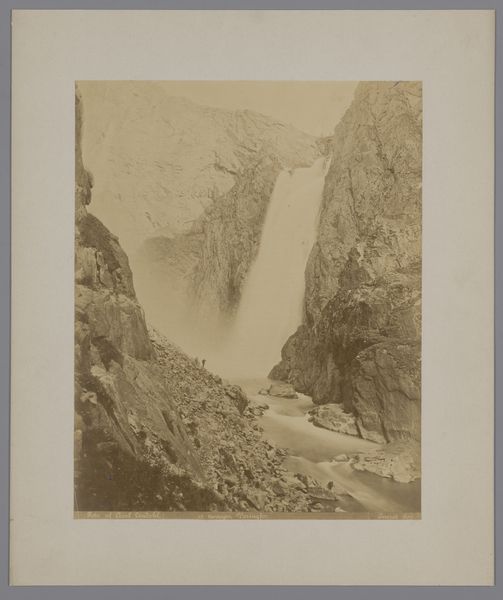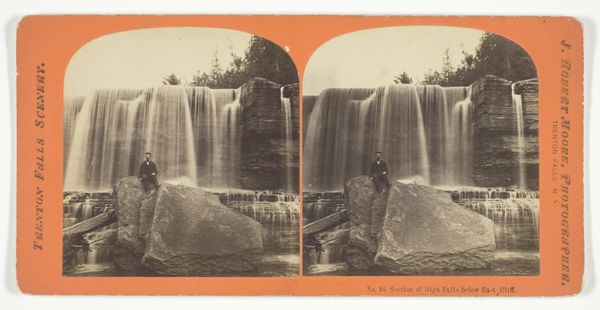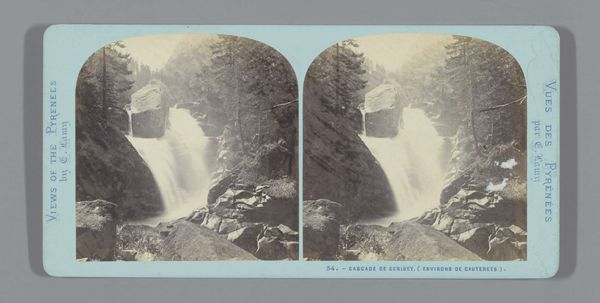
photography
#
landscape
#
waterfall
#
photography
#
mountain
#
hudson-river-school
Dimensions: height 206 mm, width 155 mm
Copyright: Rijks Museum: Open Domain
Editor: Here we have Carleton Watkins’ "Gezicht op de Nevadawaterval in de Yosemite Valley," a photograph from before 1868. What strikes me most is the almost theatrical framing of the waterfall by the cliffs – it’s as if nature itself is staging a dramatic performance. How do you interpret this work? Curator: This photograph evokes the sublime, doesn't it? The falls are like a visual metaphor for the unstoppable force of nature, something far beyond human comprehension. Notice how the small figures atop the cliffs underscore this sense of scale and our place within it. Can you imagine what symbols the waterfall may bear to those settlers moving West? Editor: I see what you mean. The tiny figures really highlight how immense the landscape is. But what symbols specifically would stand out to those early settlers? Curator: Think about what a waterfall *means*. It's a source of water, essential for life, and visually, the relentless downward flow suggests purification, renewal, and the passage of time itself. For settlers facing an unknown future, it might have been read as a sign of hope, of continuous support in a challenging journey – or perhaps a warning of nature’s volatile potential. Does the sepia tone alter how this is conveyed? Editor: Interesting. The sepia tones add a sense of timelessness, almost romanticizing the scene, maybe even muting that volatile potential you mentioned. Thanks, that gives me a new perspective on landscape photography. Curator: Indeed, the Hudson River School sought to ennoble landscapes through symbolism. Consider how the addition of human figures may highlight nature’s importance within society, a cultural moment preserved by visual signs. A fruitful exchange.
Comments
No comments
Be the first to comment and join the conversation on the ultimate creative platform.
